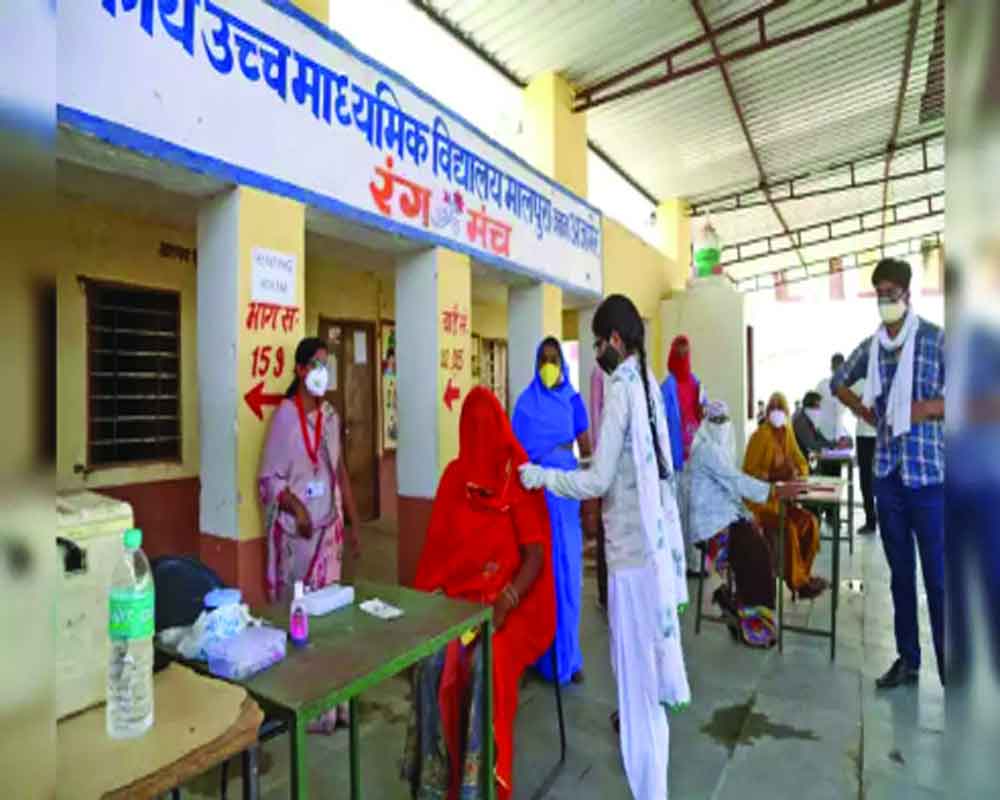The Government's health programmes fail to sufficiently support rural women and girls affected by anaemia, a significant public health concern
In Rajasthan, the healthcare system is facing significant challenges, particularly in rural areas. Despite numerous Government initiatives aimed at improving healthcare access and quality, the benefits of these programs are not reaching their intended targets.
This issue is especially pronounced among women and adolescent girls suffering from anaemia. While the State Government has enacted the Right to Health Act and conducts monthly campaigns to combat anaemia, these efforts have yet to bring about substantial improvements in the health sector across rural Rajasthan.An example of this can be seen in the village of Manoharpura located just four kilometres from the heritage city of Udaipur. This village falls under the Badgaon Panchayat and has a population of around one thousand.
Predominantly inhabited by Scheduled Tribes, the village has a low level of education, which impacts the awareness of its residents. Despite its proximity to the district headquarters, Manoharpura lags significantly in the health sector. Many families in the village lack even basic identification documents, which prevents them from accessing healthcare services.
The reason for not having documents is that most children in the village were born at home rather than in hospitals, resulting in the absence of birth certificates and Aadhar cards. For young girls and women, the State Government has launched the ‘I Am Shakti Udaan Yojana.’ This scheme aims to empower economically weaker women and girls and the goal is to include about 2.8 million women and adolescents in this benefit by 2024. As part of this scheme, menstruating girls and women aged 11 to 45 receive sanitary pads. However, most adolescent girls and women miss out on this benefit. Due to both a lack of awareness and poverty, many girls still use dirty clothes during menstruation instead of buying pads. Additionally, about half of the adolescent girls and women in the village suffer from anaemia, despite the State Government’s monthly Shakti Diwas events aimed at eradicating anaemia in Rajasthan.It is important to note that various activities are organised under this campaign to reduce anaemia rates among children, women and adolescents. ‘Shakti Diwas’ events are held at Anganwadi centres, Government schools, health and wellness centres, sub-health centres, primary health centres, CHCs, dispensaries and sub-district and district hospitals. These events include anaemia screenings, haemoglobin tests and treatment, distribution of iron tablets and activities to raise awareness and promote behaviour change regarding anaemia.
On ‘Shakti Diwas,’ targeted activities are conducted for children aged 6 months to 59 months, out-of-school children aged 5 to 9 years, adolescents aged 10 to 19 years and married women aged 20 to 24 years. Efforts are also made to combat anaemia in pregnant women and breastfeeding mothers.
However, this issue extends beyond Manoharpura village to the entire Udaipur district, where ineffective implementation has affected district rankings. During the health department’s monthly review meeting last November, the CEO Kirti Rathore expressed dissatisfaction with the situation. She emphasised the urgent need to ensure that benefits reach all children, adolescents and women and to strictly enforce measures to make the district anaemia-free.
These shortcomings reveal that Manoharpura residents are still not receiving full healthcare benefits and the village has not met its health targets. Addressing this requires both administrative action and increased community awareness, involving as many families as possible.
(The writer is a social worker from Grameen Awam Samajik Vikas Sansthan, Ajmer; views are personal. Charkha Features)


























